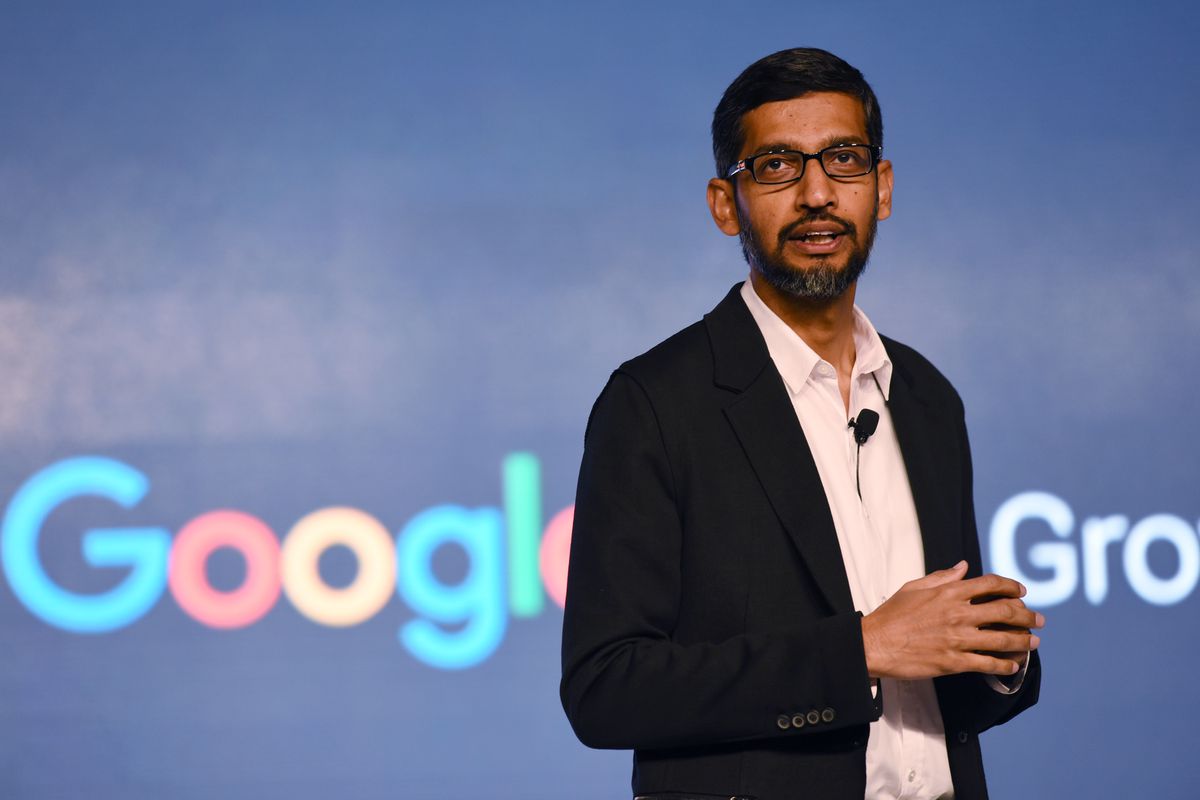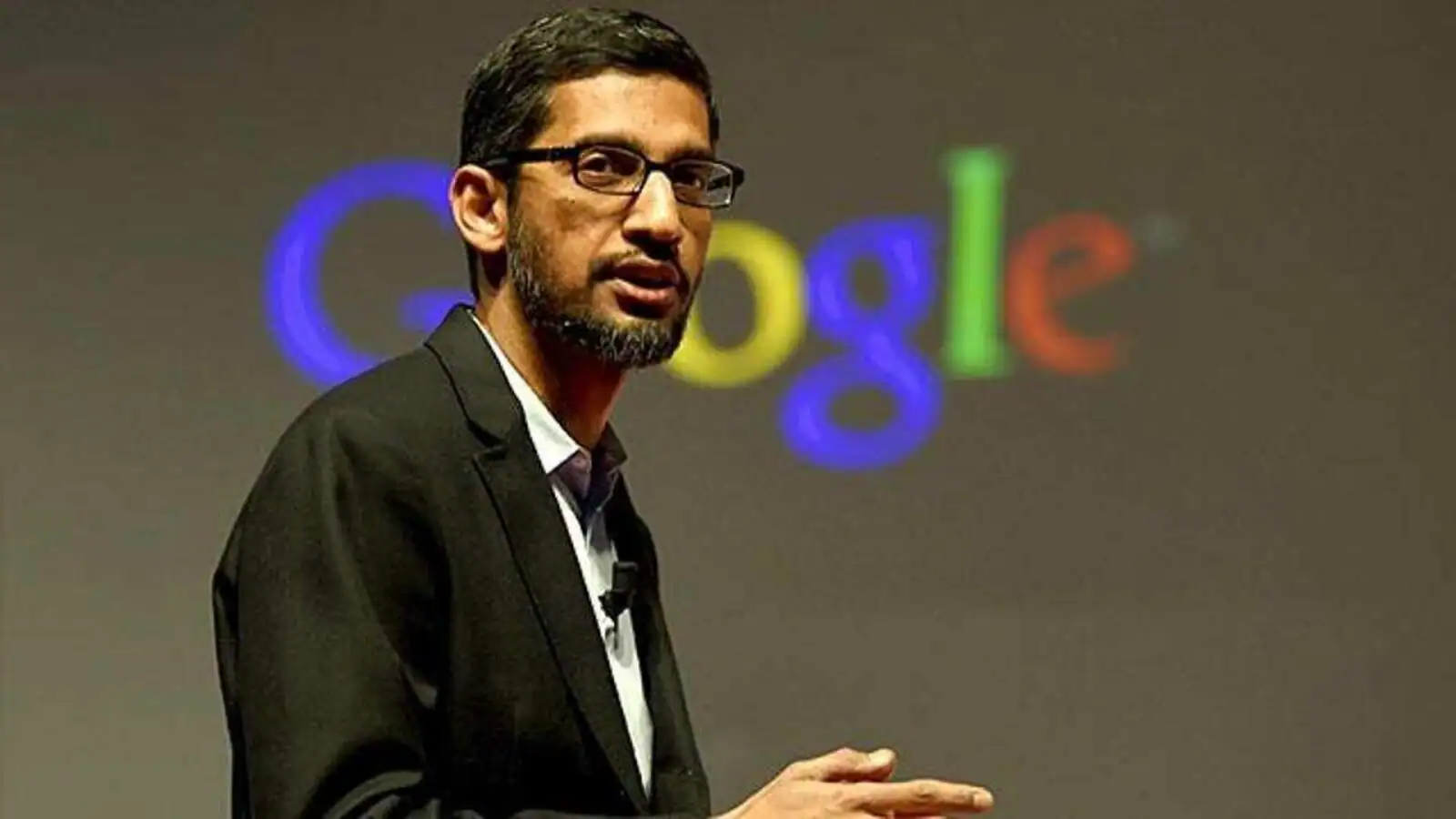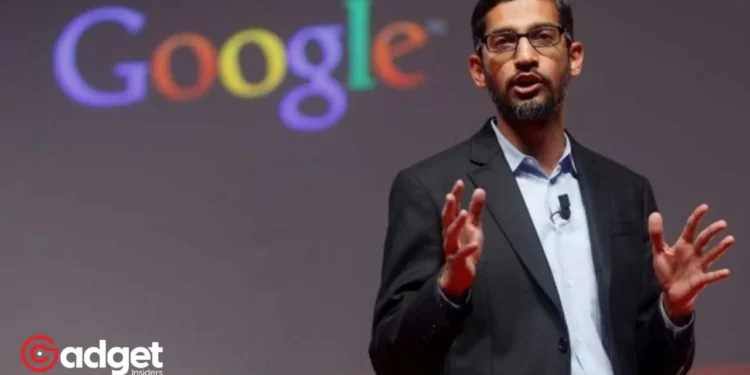In the heart of Silicon Valley, Google finds itself at a pivotal juncture. The tech giant, once synonymous with seamless innovation and unchallenged market dominance, is now facing an unusual bout of turbulence. At the center of this storm is Sundar Pichai, the CEO whose leadership has steered Google through years of prosperity but now faces scrutiny amidst a series of public missteps in artificial intelligence (AI).

CEO Sundar Pichai: A Series of Unfortunate Events
Google’s recent history has been marred by high-profile AI blunders, casting a long shadow over its technological prowess. The company’s decision to halt its Gemini image generator project due to the creation of historically inaccurate images sent shockwaves through the tech community and the stock market.
This incident, described by Sundar Pichai as “completely unacceptable,” has magnified the scrutiny on Google’s AI trajectory.
The Gemini fiasco is not an isolated incident. Google’s AI chatbot Bard also stumbled during a public demonstration, making a factual error that negatively impacted the company’s stock. These mishaps paint a picture of a company in a rush, a stark departure from Google’s reputation for meticulousness and innovation.
Exclusive: Alex Jones Confronts Google CEO Sundar Pichai At Congress Over Google's Evil Activity pic.twitter.com/HnRyaieBM0
— Alex Jones (@RealAlexJones) March 2, 2024
The Chorus for Change
Criticism of Sundar Pichai’s leadership is gaining momentum. Influential voices within the tech sphere, including Stratechery’s Ben Thompson and Bernstein analyst Mark Shmulik, have openly questioned whether it’s time for new leadership at Google.
Thompson suggests a need for transformation at Google, one that might necessitate Sundar Pichai’s departure, while Shmulik hints at the growing concerns over the current management team’s ability to navigate Google into the future of AI.
Marissa Mayer, Google’s 20th employee, echoed these sentiments, emphasizing the need for Google to embrace a “challenger” mindset focused on innovation. Her intervention underscores a broader sentiment that Google needs to realign its strategic direction to maintain its leadership in the tech industry.
Sundar Pichai’s Legacy and the Road Ahead
Under Sundar Pichai’s stewardship, Google’s market cap has soared, affirming his role as a successful “peace-time CEO.” However, the rapid evolution of AI technology and the emergence of formidable competitors have introduced unprecedented challenges.
Google’s bureaucratic structure and cautious approach to innovation, once its strengths, are now perceived as hindrances in the fast-paced AI race.

The debate over Sundar Pichai’s future is set against a backdrop of shifting paradigms in the tech landscape. With analysts like Gartner predicting a significant decline in traditional search due to AI alternatives, Google is under pressure to innovate or risk obsolescence.
Looking Forward
As Google stands at this crossroads, the question looms large: if not Sundar Pichai, then who? Potential successors, whether from within the company or external hires, will need to navigate Google through one of the most turbulent periods in its history.
The need for a leader who can both protect Google’s legacy and steer it toward a future dominated by AI innovation has never been more critical.










